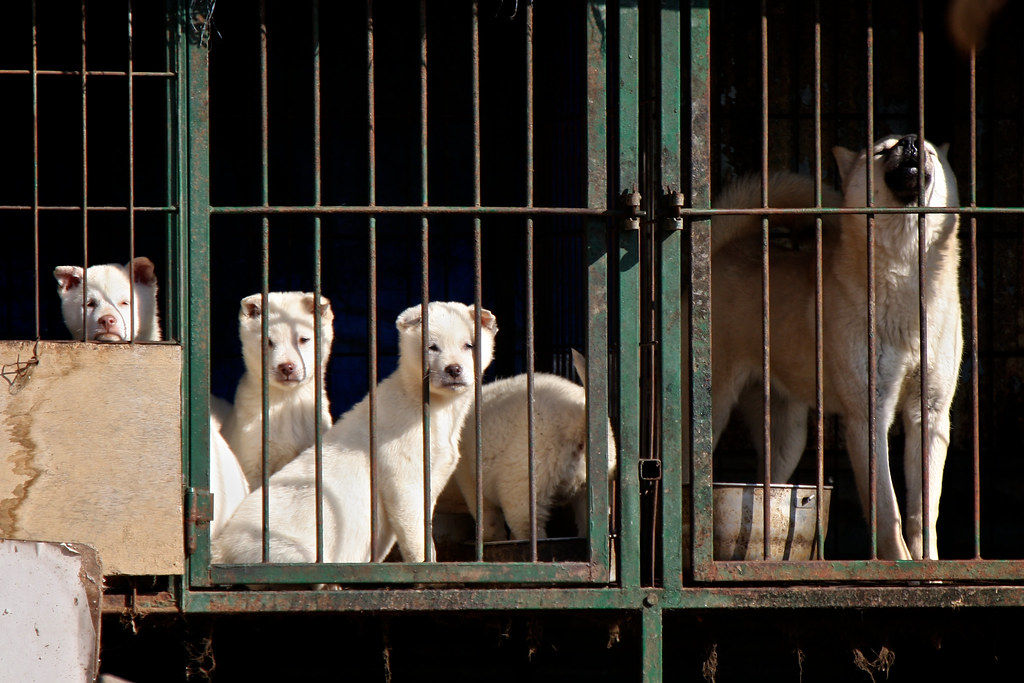The South Korean Parliament just banned the sale and production of dog meat. The law was passed on January 9, 2024, and will take effect in 2027. The law affects producers, not consumers, meaning dog farmers and sellers will be targeted. A vote of 208-0 passed the bill, and still needs President Yoon Suk Yeol’s signature; his approval isn’t a major concern, as his government has already supported the ban. South Korean officials are keeping the welfare of those involved in the dog meat industry in mind, giving them a three-year period to adjust their businesses and requiring local governments to assist with the transition. This won’t be an effortless change, as according to the Korean Association of Edible Dog, there are around three thousand dog meat farms in the country. Despite this, the practice of eating dog meat has sharply declined in recent years, and aside from some heated dog farmers looking to protest the bill, it has vast public support.
Dog meat became popular amongst South Koreans during the Korean War and WWII when food sources dwindled. This diet was started by the poor, and eventually grew in popularity, being picked up by the wealthy as a niche delicacy. Some elderly South Koreans believe that dog meat will boost your energy and keep you cool during the summer. One man even told the New York Times, “‘The dogs eaten by people are raised specifically for that purpose, so I don’t feel any guilt.’” It’s usually consumed in the form of “bosintang,” a spicy stew made with dog meat and Korean mint. The consumption of dog meat in the Asian country increases dramatically around Sambok, the three hottest days of the summer in Korea.
Other countries, such as India, the Philippines, Taiwan, and Thailand, have already banned the dog meat trade, while Vietnam, Cambodia, North Korea, China, and Indonesia have not. Some in these countries reject criticism of the dog meat industry, viewing it as Western disrespect or judgment of other cultures. Yet, the complaints don’t always fall on deaf ears; during the 1988 Seoul Olympics, foreign disapproval reached an all-time high, and the South Korean government banned dog meat in certain parts of the country.
But why are certain animals okay to eat in some places, but in others, it’s taboo? It all has to do with the idea of carnism, the ideology that conditions people to eat specific animals. In the majority of Western countries, dogs are viewed as pets and companions, so humans feel empathy and love for them. This connection is far stronger than most people in the West would have to a cow or a chicken. In other countries, eating dog meat can be thought of the same way as eating bacon from a pig or steak from a cow.
As pet ownership in South Korea becomes more common, the number of people consuming dog meat decreases. In a survey Gallup Korea conducted in 2022, only 8% of South Koreans claimed to have eaten dog meat in the past year, a 19% decrease from 2015. This is part of the reason why the ban gained such wide approval, amongst both the public and the government, as the bill received bipartisan support. The South Korean parliament agreed on a fine of 30 million Won (around 23,000 US dollars) for canine butchering and two years in prison or a 20 million won fine for breeding and selling dogs for eating.
The ban will put an end to decades of international debate and controversy over canine consumption. It is heavily supported by First Lady Kim Keon Hee, a pet owner and animal welfare enthusiast, as well as the Humane Society International, which has rescued and relocated dogs from South Korean farms in the past. While the Korean Dog Meat Association has criticized both the government and the ban itself, the law offers financial motivations for dog farmers and those who work at dog meat restaurants to find new jobs. As the number of South Koreans eating dog meat has decreased so sharply, the law was considered a victory for the country and its people. Chae Jung Ah, the director of Humane Society International Korea, says, “This is history in the making I never thought I would see in my lifetime,” and he isn’t the only one.







